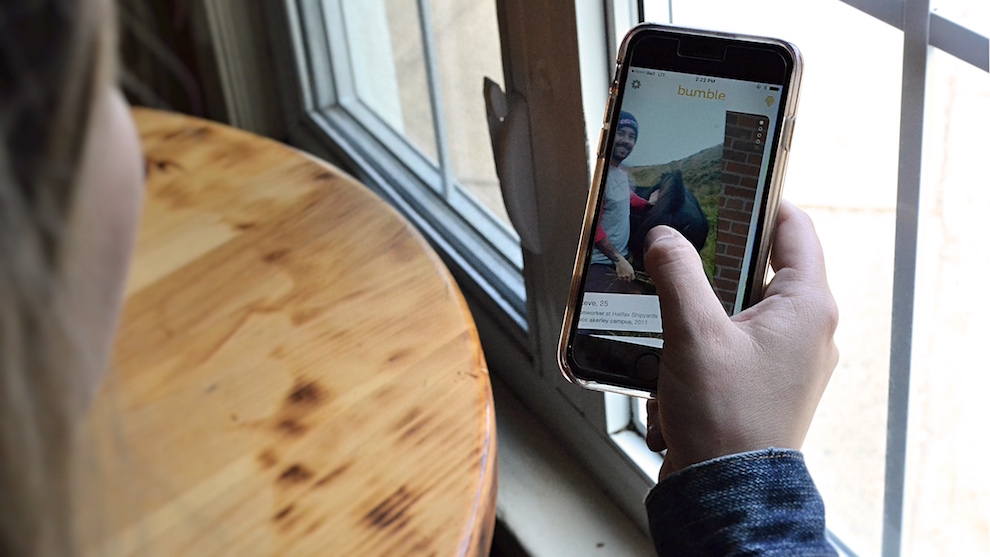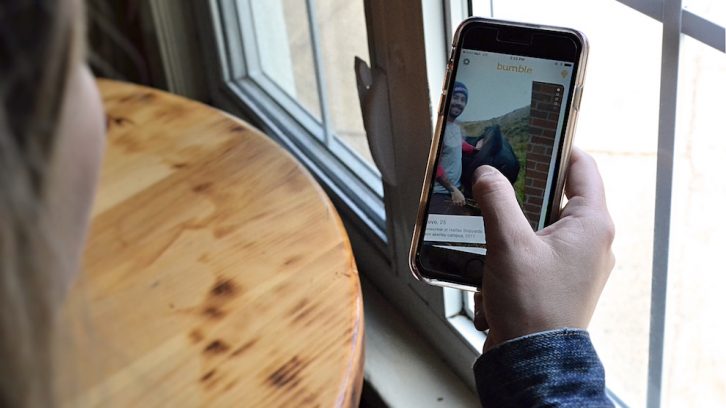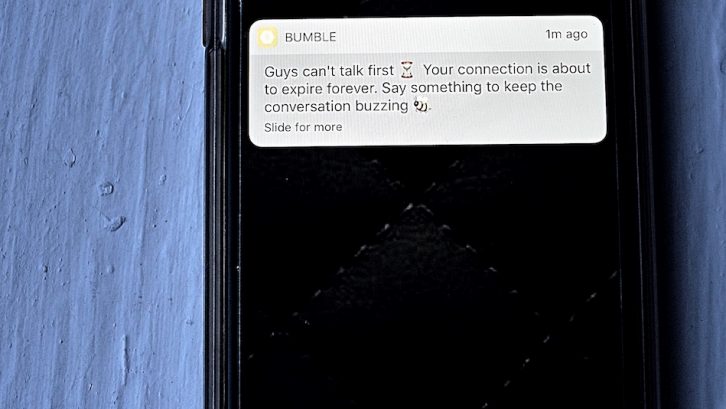Life
Women-first Bumble app has students talking – and swiping
'Safer for women to use than other dating apps'

caption
Social dating app was created "specifically for women."
caption
Bumble, a dating app, was created specifically for women.Who wants to be insulted by a stranger?
Not University of King’s College student Taylor English, who thinks dating app Bumble “removes the option for men to do this” to women they don’t know.
“I see a lot of women post about being harassed by men they don’t want to talk to, whether it be men messaging them constantly, even though they don’t respond, or men saying unwarranted sexually explicit things,” she says of online dating.
The co-founder of Tinder and CEO of Bumble, Whitney Wolfe, had this in mind when creating a feature for her app.
Bumble is taking steps to increase user safety by announcing the release of a new selfie verification tool in late September. A roll-out date hasn’t been set.
The tool will allow users to take a selfie that will be verified by someone on the Bumble team. A profile rejection caused by an already-verified account turns off the fake one.
According to TechCrunch, a technology news website, this is only mandatory for fake profiles that have been reported to the site. Users can still apply for the verification, if they choose.
English finds this will “weed out potentially dangerous users,” because people can easily confirm whom they’re talking to.
Bumble, created in 2014, is similar to Tinder as both use swiping on profiles for potential dating connections. Bumble has an estimated 3.5 million users, compared to Tinder’s estimated 50 million in 2014.
The difference between is that Bumble allows women to message first when matched with men. The have 24 hours to reach out to the connection before it’s removed from their chat.
“I don’t find it necessarily empowering,” says English, but she thinks it will help to avoid harassment. “I definitely find it safer for women to use than other dating apps.”
However, Christian Sarrazin, a business marketing student at Dalhousie University, says he doubts the app will solve the problem of harassment.
“It eliminates the initial message being sexist, sure, but if someone messages me I can reply with whatever nonsense I want, so it doesn’t really do much,” he says.
“Whatever gender should be able to message first, you have the option to delete them; those type of people exist, (so) an app won’t protect you from them.”

caption
Women receive this message before the 24-hour time limit is up to chat with their matches.Dr. Letitia Meynell, an associate professor in the Department of Gender and Women’s Studies at Dalhousie University, says the issue goes much deeper than dating apps.
“People who would say, ‘this is reverse sexism,’ presuppose that we’re on an equal playing field, which we’re so manifestly not,” says Meynell.
She sees the app as a “coping mechanism” for the larger problems between men and women.
“I think for those people who don’t like the inequality of it, my response would be I don’t like it either, let’s deal with inequality,” she says. “You gotta start way lower down than this little app.”
Meynell notes an example of inequality between men and women when it comes to the societal view of the “norm” in relationships.
“Women are supposed to be incredibly focused on their relationships; it’s supposed to be everything in their lives,” she says. “Men are supposed to be like, ‘yeah, yeah it’s nice to have a girlfriend.’”
English hopes other dating apps will start similar projects like Bumble’s new tool.
“(When it comes to) combating harassment and fake users,” she says, “there’s no excuse for other apps to not follow.”
For Sarrazin, it’s a question of convenience. Although the new tool will take only moments to verify, he wonders if the verification requirement may stop new users from swiping.
“Some might think it’s nice,” he says. “Some might say it’s too much work.”
According to TechCrunch, Bumble will give reported fake profiles seven days before hiding the profile. Matches won’t be able to be seen without verification during this time.

